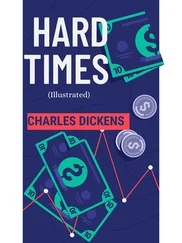‘Did you ever hear tell of mermaids, sir?’ said Mr Willet.
‘Certainly I have,’ replied the clerk.
‘Very good,’ said Mr Willet. ‘According to the constitution of mermaids, so much of a mermaid as is not a woman must be a fish. According to the constitution of young princes, so much of a young prince (if anything) as is not actually an angel, must be godly and righteous. Therefore if it’s becoming and godly and righteous in the young princes (as it is at their ages) that they should be boys, they are and must be boys, and cannot by possibility be anything else.’
This elucidation of a knotty point being received with such marks of approval as to put John Willet into a good humour, he contented himself with repeating to his son his command of silence, and addressing the stranger, said:
‘If you had asked your questions of a grown-up person—of me or any of these gentlemen—you’d have had some satisfaction, and wouldn’t have wasted breath. Miss Haredale is Mr Geoffrey Haredale’s niece.’
‘Is her father alive?’ said the man, carelessly.
‘No,’ rejoined the landlord, ‘he is not alive, and he is not dead—’
‘Not dead!’ cried the other.
‘Not dead in a common sort of way,’ said the landlord.
The cronies nodded to each other, and Mr Parkes remarked in an undertone, shaking his head meanwhile as who should say, ‘let no man contradict me, for I won’t believe him,’ that John Willet was in amazing force to-night, and fit to tackle a Chief Justice.
The stranger suffered a short pause to elapse, and then asked abruptly, ‘What do you mean?’
‘More than you think for, friend,’ returned John Willet. ‘Perhaps there’s more meaning in them words than you suspect.’
‘Perhaps there is,’ said the strange man, gruffly; ‘but what the devil do you speak in such mysteries for? You tell me, first, that a man is not alive, nor yet dead—then, that he’s not dead in a common sort of way—then, that you mean a great deal more than I think for. To tell you the truth, you may do that easily; for so far as I can make out, you mean nothing. What DO you mean, I ask again?’
‘That,’ returned the landlord, a little brought down from his dignity by the stranger’s surliness, ‘is a Maypole story, and has been any time these four-and-twenty years. That story is Solomon Daisy’s story. It belongs to the house; and nobody but Solomon Daisy has ever told it under this roof, or ever shall—that’s more.’
The man glanced at the parish-clerk, whose air of consciousness and importance plainly betokened him to be the person referred to, and, observing that he had taken his pipe from his lips, after a very long whiff to keep it alight, and was evidently about to tell his story without further solicitation, gathered his large coat about him, and shrinking further back was almost lost in the gloom of the spacious chimney-corner, except when the flame, struggling from under a great faggot, whose weight almost crushed it for the time, shot upward with a strong and sudden glare, and illumining his figure for a moment, seemed afterwards to cast it into deeper obscurity than before.
By this flickering light, which made the old room, with its heavy timbers and panelled walls, look as if it were built of polished ebony—the wind roaring and howling without, now rattling the latch and creaking the hinges of the stout oaken door, and now driving at the casement as though it would beat it in—by this light, and under circumstances so auspicious, Solomon Daisy began his tale:
‘It was Mr Reuben Haredale, Mr Geoffrey’s elder brother—’
Here he came to a dead stop, and made so long a pause that even John Willet grew impatient and asked why he did not proceed.
‘Cobb,’ said Solomon Daisy, dropping his voice and appealing to the post-office keeper; ‘what day of the month is this?’
‘The nineteenth.’
‘Of March,’ said the clerk, bending forward, ‘the nineteenth of March; that’s very strange.’
In a low voice they all acquiesced, and Solomon went on:
‘It was Mr Reuben Haredale, Mr Geoffrey’s elder brother, that twenty-two years ago was the owner of the Warren, which, as Joe has said—not that you remember it, Joe, for a boy like you can’t do that, but because you have often heard me say so—was then a much larger and better place, and a much more valuable property than it is now. His lady was lately dead, and he was left with one child—the Miss Haredale you have been inquiring about—who was then scarcely a year old.’
Although the speaker addressed himself to the man who had shown so much curiosity about this same family, and made a pause here as if expecting some exclamation of surprise or encouragement, the latter made no remark, nor gave any indication that he heard or was interested in what was said. Solomon therefore turned to his old companions, whose noses were brightly illuminated by the deep red glow from the bowls of their pipes; assured, by long experience, of their attention, and resolved to show his sense of such indecent behaviour.
‘Mr Haredale,’ said Solomon, turning his back upon the strange man, ‘left this place when his lady died, feeling it lonely like, and went up to London, where he stopped some months; but finding that place as lonely as this—as I suppose and have always heard say—he suddenly came back again with his little girl to the Warren, bringing with him besides, that day, only two women servants, and his steward, and a gardener.’
Mr Daisy stopped to take a whiff at his pipe, which was going out, and then proceeded—at first in a snuffling tone, occasioned by keen enjoyment of the tobacco and strong pulling at the pipe, and afterwards with increasing distinctness:
‘—Bringing with him two women servants, and his steward, and a gardener. The rest stopped behind up in London, and were to follow next day. It happened that that night, an old gentleman who lived at Chigwell Row, and had long been poorly, deceased, and an order came to me at half after twelve o’clock at night to go and toll the passing-bell.’
There was a movement in the little group of listeners, sufficiently indicative of the strong repugnance any one of them would have felt to have turned out at such a time upon such an errand. The clerk felt and understood it, and pursued his theme accordingly.
‘It WAS a dreary thing, especially as the grave-digger was laid up in his bed, from long working in a damp soil and sitting down to take his dinner on cold tombstones, and I was consequently under obligation to go alone, for it was too late to hope to get any other companion. However, I wasn’t unprepared for it; as the old gentleman had often made it a request that the bell should be tolled as soon as possible after the breath was out of his body, and he had been expected to go for some days. I put as good a face upon it as I could, and muffling myself up (for it was mortal cold), started out with a lighted lantern in one hand and the key of the church in the other.’
At this point of the narrative, the dress of the strange man rustled as if he had turned himself to hear more distinctly. Slightly pointing over his shoulder, Solomon elevated his eyebrows and nodded a silent inquiry to Joe whether this was the case. Joe shaded his eyes with his hand and peered into the corner, but could make out nothing, and so shook his head.
‘It was just such a night as this; blowing a hurricane, raining heavily, and very dark—I often think now, darker than I ever saw it before or since; that may be my fancy, but the houses were all close shut and the folks in doors, and perhaps there is only one other man who knows how dark it really was. I got into the church, chained the door back so that it should keep ajar—for, to tell the truth, I didn’t like to be shut in there alone—and putting my lantern on the stone seat in the little corner where the bell-rope is, sat down beside it to trim the candle.
Читать дальше












